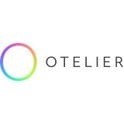Remington Turns to Tech to Fill Labor Gaps
Pandemic-driven technology implementations have generally been adopted successfully and proven their ROI. Remington is now asking: What’s next?

You’ve heard it before: Compared to other industries like retail and banking, the hotel industry has traditionally been slow to adopt modern technology. But owners and operators received the ultimate wake-up call in March 2020 and, out of necessity, swiftly turned to digital tools to more effectively communicate with guests and keep the doors open with fewer staff members.
At the onset of COVID and during heightened travel lockdowns, demand at many hotels plummeted to near zero.
We weren’t doing any business so we couldn’t afford to have any people,
says Chris Green, who assumed the President role at Remington Hotels in December. So we had to move into a more tech forward space, whether that meant adopting housekeeping software that allows us to organize the day or mobile-based apps for hiring service staff on a per-shift basis.
Like many operators, what Remington found is that many of these pandemic-driven technology implementations were widely adopted successfully and proved their ROI. In fact, according to a recent report from Celerity, 63% of leaders said COVID-19 made their organizations embrace digital transformation sooner than they had expected and were making greater investments in technology as a result.
All of these things that previously seemed like great ideas all of a sudden became necessary, and the best companies became rapid adopters,
Green says. And what we learned was that some of these ways of doing things are just better.
Naturally, this strengthened the case for adopting technology earlier, and opened conversation among Remington leadership about other areas where technology could help them operate more efficiently. If you're a good manager, you have to say, ‘Okay, what else?’ What else can I do?’ And that's where I think that technology is pushing us.
Today, Remington is operating with 10%-12% fewer team members across the portfolio than before the pandemic, Green says. In many areas, they’ve turned to technology to close the gap.
Areas of Innovation
Green says Remington has built out Business Intelligence functionality that reduces the amount of time it takes leadership to aggregate reports, and implemented a tool to help optimize housekeeping performance.
The goal behind new reporting and dashboarding functionality was to free up leadership time previously spent aggregate reports and data from various sources.
All these things came together quickly that free up time on property and at the regional level too,
Green says. Now, managers have more time to spend with guests and running the building.
Other areas of interest for Green are the resurgence and rapid adoption of QR codes, and beacon technology.
QR codes were dead, but now everyone is asking ‘Where is the QR code?
he says. I was just in a hotel room where you walk in and scan the QR code on the television and login to your Netflix and get access to everything else as well.
Green says he’s fascinated with beacon technology and the ability to deliver on-demand offers while guests are on property.
One area Remington has fully digitized is the night audit process, moving away from printing, scanning and storing paper copies of daily reports. Green says digital document management frees up the Night Auditor on property to perform more valuable functions.
In the old days, the Night Auditor would normally be by themselves, and on one screen they’d have the PMS open and they’d be checking in guests, and on another screen they’re putting in restaurant covers and trying to balance cash and all these things,
he said. Now it's all one-click Night Audit, and technology handles it all and stores everything in the cloud.
We used to store packets, envelopes full of reports for every day. Heaven forbid if you had an audit or needed to go back and find a receipt,
he said. Now it's all in the cloud; It's just one click, go in, scroll through and send it out. It's super fast and efficient.
Jason Freed
Hospitality Data Evangelist
3302216068
Otelier (formerly myDigitalOffice)
